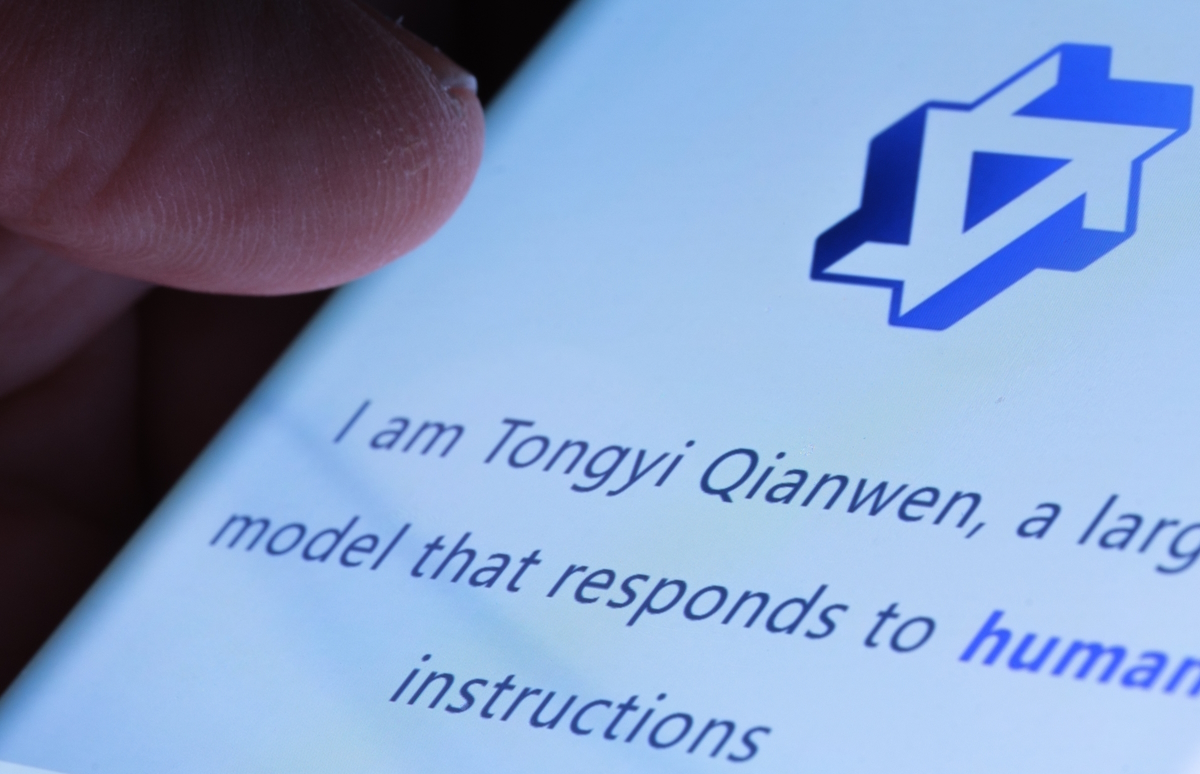China’s cyberspace regulator has announced measures for managing generative artificial intelligence (AI) in an attempt to keep a check on the rapid growth of AI services in the country in response to the rise of ChatGPT. China supports AI innovation and application, but AI-generated content has to be in line with China’s core socialist values, the Cyberspace Administration of China (CAC) stated.
The regulator urges providers to use ‘legitimate data’ for training generative AI products. Furthermore, service providers should make sure that users are submitting their real identities and related information. According to the new CAC rules, companies must update their technology within three months if ‘inappropriate content’ was generated by their platforms. Not abiding by the rules will lead to providers being fined, suspension of their services or even facing criminal charges.
Alibaba’s new AI model
The AI race in China has experienced a new spark as Alibaba’s Cloud unit unveiled its very own AI model named Tongyi Qianwen earlier this week in hopes of bridging the gap with Open AI’s ChatGPT. This is one of the many attempts made by various Chinese tech giants to catch up with the Microsoft-backed AI model.
Tongyi is Alibaba’s proprietary pre-trained model framework which has various AI features. Solving math problems, drafting emails, writing code, interpreting images and converting text to images are some of the AI’s abilities, according to the company. It is capable of functioning in Chinese and English language.
Tongyi Qianwen, which roughly translates as ‘Truth from a Thousand Questions’, will first be added to Alibaba’s digital collaboration workplace DingTalk and voice assistant Tmall Genie, with future plans to expand the model’s application across all of the company’s businesses covering e-commerce, search, navigation, enterprise communication, intelligent voice assistance and entertainment. The company is also looking to attract more customers for its cloud computing platform by deploying AI with lower pricing. However, as of now, Tongyi Qianwen is only available for beta testing to the Chinese enterprise customers of Alibaba.
The CEO of Alibaba Group and head of Alibaba Cloud Intelligence, Daniel Zhang, hopes for a joint effort of research institutes, universities and different industries with the company to develop other models.
Following the announcement, Alibaba shares rose as much as 3.8% in Hong Kong on April 11.
“We have no idea about the quality of Alibaba’s app. However, we do not believe such traffic-oriented research is a right decision in the profit-oriented time. Furthermore, content app always faces censorship in China,” writes analyst Ming Lu of Aequitas Research on Smartkarma.
China ChatGPT version in the making?
The success of ChatGPT has stirred many Chinese companies to join the chatbot bandwagon. Amongst the other companies that have unveiled their AI models are AI group SenseTime, search engine giant Baidu and internet security company Qihoo. Tencent Holdings has prepared a development team to work on a ChatGPT-like chatbot.
TikTok owner ByteDance has also joined the race by forming two AI teams, one for large-scale language model and the other for integrating AI-generated audio content, according to Chinese news website Caixin. Online retailer JD.com’s cloud business is working on natural language processing and conversation generation.
However, the way for China to catch up with ChatGPT seems long. Both, Alibaba and Baidu have admitted that their respective chatbots have a lot to learn. But, Baidu’s CEO Robin Li told Chinese media “When ChatGPT was first launched, user feedback was much worse than it has been for Ernie.”.
– reporting by Jovan Thomas


 Australia
Australia China
China India
India Indonesia
Indonesia Japan
Japan Malaysia
Malaysia Philippines
Philippines Singapore
Singapore South Korea
South Korea Taiwan
Taiwan Thailand
Thailand Vietnam
Vietnam







